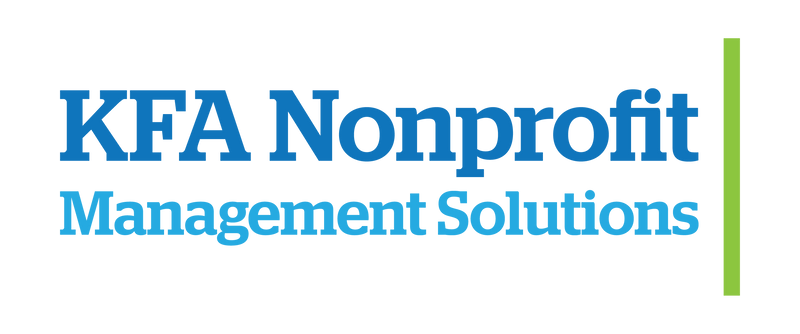Let’s imagine you’ve taken the proactive step towards enhancing your nonprofit's effectiveness and growth and hired a grant writing consultant (ideally, us). What’s next? How does this work?
Engaging a grant writing consultant marks a significant milestone towards transforming your organization’s capacity and sustainability. However, as with any professional relationship, there are potential pitfalls. Through almost two decades of working with clients in consulting relationships, we have a formula for success and have long-since learned what doesn’t work. Before we launch into a series of case studies about our clients’ successes, we thought it would be helpful to explain some potential pitfalls and how to navigate them so you can ensure a productive collaboration with a grant writing consultant, whether you choose us or someone else.
Setting Clear Goals
First, and most importantly, you have to know what you want to accomplish in the relationship, specifically how grant funding fits into your overall plan for growth and development. We prefer to work with clients who have a strategic plan and are clear about their goals for growth and sustainability. While we occasionally take on singular projects, most often we work with organizations poised for growth, but bumping up against a plateau, who have a very clear understanding of where they want to be. We help them get there.
When you hire a grant writing consultant like us, we start by evaluating your current funding landscape and strategies and producing a comprehensive grant prospectus to give you a complete picture of appropriate funders and programs to meet your needs. Be prepared for some invasive questions, like how strong your administration is, whether you have your financials audited annually, and what your cash flow looks like. We aren’t being nosy. We’re conducting due diligence to ensure you have the fiscal capacity to handle major grants on a reimbursement basis and making sure you have the administrative capacity to manage the reporting requirements once you’re awarded.
Once we’ve conducted our assessment and research and deliver a comprehensive prospectus, we propose a tailored plan for which grants to pursue over a twelve month period. Why twelve months? Typically, we can’t forecast competitions out farther than that and we take care to balance our workload over the calendar year to ensure every client receives our undivided attention when their deadlines arrive.
Having Realistic Expectations
It's crucial to be transparent about your expectations and concerns right from the outset. If a suggested strategy seems too ambitious or not ambitious enough, or if the time commitment required seems too extensive, speak up. A competent consultant will be flexible and either adjust the plan based on your feedback or convincingly explain why the proposed approach is likely to be effective. Remember, significant groundwork like research and planning has already been done — making major changes midstream can lead to wasted time and resources, for everyone involved.
We are extremely conscientious in matching appropriate funding sources with our clients’ needs and capacity. It isn’t uncommon for us to discourage our clients from pursuing grants that we know have onerous reporting requirements that the organization will struggle to meet. Big grants can make a big impact, both for your beneficiaries and on your organization. But those impacts aren’t always positive if your administration is overtaxed. We have seen organizations that have wound up “drinking from a firehose” and we take care to avoid overwhelming our clients.
Maintaining Open Communication
After investing time and resources in selecting the right grant writing consultant, organizations have to ensure they are not hindered by internal communication barriers. Often, consultants face delays because they're interacting with the wrong people within the organization. To prevent this, we establish a clear point of contact in our contracts— ideally, someone who understands the project's intricacies and can make decisions or relay information promptly. Ensure that this key contact is responsive. Regularly check emails, promptly reply to inquiries, and adhere to scheduled updates. The consultant will develop action plans based on their knowledge of best practices; delays in communication can disrupt these plans, affecting your funding timelines and outcomes.
Upholding Honesty and Transparency
Honesty is the cornerstone of any successful professional relationship. The impact of misleading or inaccurate information is particularly severe in grant writing, where deadlines are tight, and funding opportunities can be highly competitive. If there are any issues or delays in providing the necessary information or documents, it's crucial to communicate these honestly. As the client, it's your responsibility to monitor the progress and ensure that the consultant receives accurate updates. Utilizing tools like a project management system can help maintain transparency and accountability. At our consultancy, we use sophisticated project management software to monitor tasks, deadlines, and progress, and communicate regularly to ensure that everyone is aligned and informed.
Succeed
Choosing to work with a grant writing consultant is a decision that can lead to substantial benefits for your nonprofit. Like any significant relationship, it requires mutual trust, open communication, and a commitment to shared goals. By setting clear expectations, being realistic, maintaining robust communication channels, and fostering an environment of transparency and honesty, you can maximize the effectiveness of your collaboration and see significant advancements in your organization's grant revenues.
Remember, a successful partnership with a grant writing consultant not only helps in securing immediate funding but also builds your organization's capacity for future success. Let's embark on this journey together and achieve remarkable results for your nonprofit.
